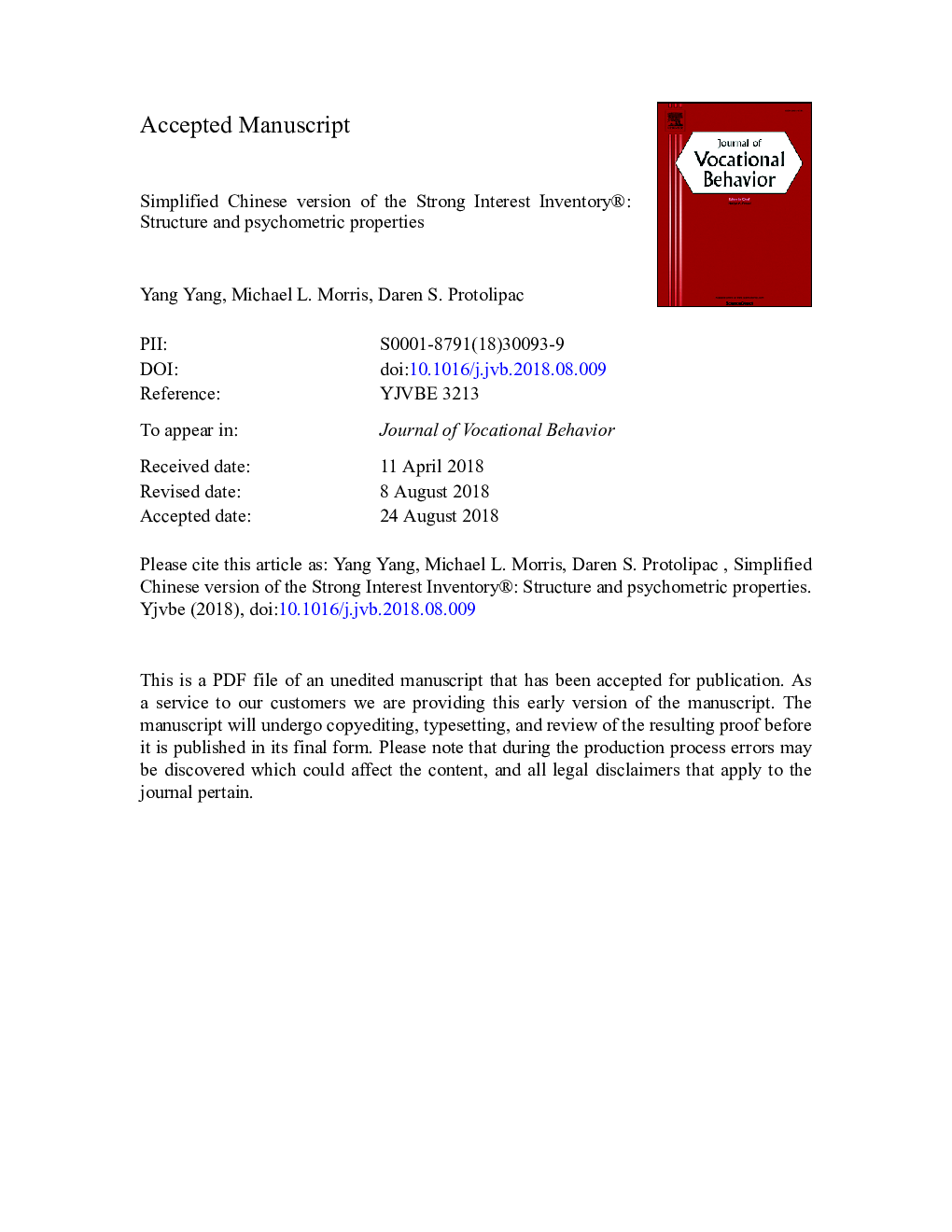| Article ID | Journal | Published Year | Pages | File Type |
|---|---|---|---|---|
| 11004386 | Journal of Vocational Behavior | 2018 | 43 Pages |
Abstract
This research translated and adapted the 2004 Strong Interest Inventory® instrument (Donnay, Morris, Schaubhut, & Thompson, 2005) into Simplified Chinese in accordance with International Test Commission (2016) guidelines. Generalizability of Holland's RIASEC structure and psychometric properties of the instrument were examined using Chinese pilot (Nâ¯=â¯481) and validation (Nâ¯=â¯663) samples of students and working adults. Using two confirmatory approaches, we found that the calculus hypotheis (i.e., circular order model) was supported (correspondence indexâ¯=â¯0.85, pâ¯=â¯.02), while the hexagonal hypothesis (i.e., circumplex model) was partially supported with three of four forms fit our validation sample (unconstrained: SRMRâ¯=â¯0.02, CFIâ¯=â¯1.00, TLIâ¯=â¯0.98, RMSEAâ¯=â¯0.06, 90% CI [0.02, 0.10]; equal-communality: SRMRâ¯=â¯0.04, CFIâ¯=â¯0.98, TLIâ¯=â¯0.95, RMSEAâ¯=â¯0.08, 90% CI [0.06, 0.11]; equal-spacing: SRMRâ¯=â¯0.04, CFIâ¯=â¯0.97, TLIâ¯=â¯0.94, RMSEAâ¯=â¯0.09, 90% CI [0.07, 0.12]). The instrument had sound psychometric properties that were comparable to the original English version. Gender differences in vocational interests were also discussed. Future research is needed to replicate these findings and provide more evidence of measurement properties. For practice, career counselors should be aware of cultural differences when interpreting results and exploring interests with clients. We conclude that this instrument is a good vocational interest tool for career counselors working in China.
Related Topics
Social Sciences and Humanities
Business, Management and Accounting
Marketing
Authors
Yang Yang, Michael L. Morris, Daren S. Protolipac,
